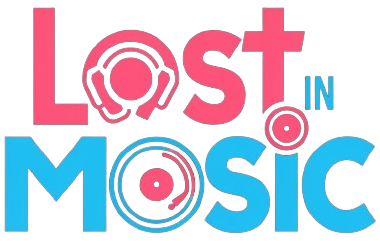Exploring the Rise of Pop Music in Mainstream Media
Pop music has risen to a highly monumental level in mainstream media, becoming a global phenomenon that has shaped the music industry, social lifestyles, pop culture, and so much more. It has seen the rise and falls of countless artists, each leaving their own unique mark on it. Pop music has undoubtedly become one of the most popular genres of music globally.
The Evolution of Pop Music
Pop music is essentially a genre of popular music that originated in its modern form during the mid-1950s. From Elvis Presley’s electrifying rock-n-roll in the 1950s to the Beatles’ invigorating beats in the 1960s; from the disco vibes of the 1970s to the sprouting pop-culture in the 1980s; from the rise of boy bands and pop divas in the 1990s to the dominance of pop icons in the 2000s; and the raging digital and globalization era of the 2010s – pop music has seen it all.
Cultural Influence of Pop Music
Pop music reflects the cultural changes our society has been experiencing. It has an immense effect on fashion trends, youth culture, and even political discourse. Time and time again, pop music artists have used this genre as a channel to convey powerful messages about society, freedom, love, and a lot more. It has a massive influence that extends beyond entertainment, reaching into social features like defiance, unity, and solidarity.
Pop Music in Mainstream Media
The evolution of pop music and its rise in mainstream media is also significantly accredited to advancements in technology. The advent of music streaming platforms such as Spotify, Apple Music, and Pandora paved the way for pop music to reach more diversified global audiences. From vinyl records, cassettes, compact discs, digital downloads, to the streaming era, pop music’s growth has gone hand in hand with these technological progressions.
The mainstream media, especially television, has crucially impacted the popularity and worldwide recognition of pop music too. Programmes like ‘American Idol’, ‘The Voice’ and ‘X Factor’ have given pop artists massive platforms to showcase their talents, consequently rising to stardom or reviving their career. Broadcast media’s influence on pop music is uncontestable, making it an integral part of our global culture and daily lives.
The Undeniable Power and Appeal of Pop Music
Pop music has the unique ability to be catchy and easy to remember. Its luscious melodies and rhythms create a universal language that transcends borders, making it relatable to many, regardless of geographic location or generation. Pop music artists become global icons, their influence crossing beyond the music sphere and impacting fashion trends, social advocacy, and even political movements.
The Future of Pop Music
Pop music is constantly evolving, adapting its sound and subject matter to changes in cultural trends and technological advancements. While it’s impossible to predict with certainty what the genre will look like in future decades, one thing is clear: pop music will continue to be a critical part of mainstream media, influencing societal trends and reflecting cultural changes across the globe.
Conclusion
Tracing the rise of pop music in mainstream media reveals its integral role in society, reflecting cultural changes and shaping social trends. Pop music will undoubtedly continue to evolve, but its impact and influence on a global scale is certain to remain unwavering. Whether it’s acting as an outlet for expression, a mirror of societal changes, or a connector of diverse individuals, pop music will continue to leave a significant footprint on the mainstream media landscape and the world at large.
Frequently Asked Questions
1. When did pop music first become popular?
Pop music’s origins date back to the mid-1950s, but it didn’t gain significant popularity until the late 1960s and early 1970s with artists like The Beatles and The Rolling Stones.
2. How has pop music impacted society?
Pop music has significantly influenced society, shaping fashion trends, youth culture, and even political discourse. It is often used as a medium to convey impactful messages to a large audience.
3. How does technology influence pop music?
With each technological advancement in media and music production, from vinyl and cassettes to digital downloads and streaming platforms, pop music’s reach and influence have expanded tremendously.
4. How has pop music evolved over the years?
Pop music has evolved from the rock-n-roll of the 1950s to the digital and globalization era of the 2010s, constantly adapting its sound and themes to reflect cultural trends and societal changes.
5. Why is pop music so popular?
Pop music’s universal appeal comes from its catchy melodies and relatable themes, easily crossing geographic and linguistic borders. This relatability and enjoyability make it widely popular worldwide.




